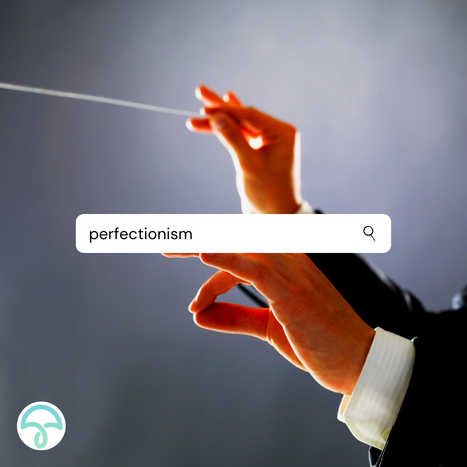Fear of Getting Old: What is Gerascophobia & How To Cope Our society is obsessed with youth. It is only necessary to look at the booming, billionare anti-ageing industry to understand the length of our obsession with appearing young. It comes as no surprise that many of us struggle with a deep-seated fear of aging. The fear of getting old is all too common and can fuel our anxiety and disrupt our mental health. That is why we want to share with you what psychology has to say about the fear of aging, and, most improtantly, discuss how to cope with this fear so that we can live more fulfilling and self-compassionate lives.
0 Comments
 Fear of failure can be one of the most self-sabotaging, crippling feelings we can experience. But why does it have such a powerful impact on us that it can make us stop chasing our dreams, avoid starting new relationships and be hyper-vigilant all the time? How can we allow fear to exert such control over our lives and, most importantly, how can we overcome this fear? Why we need trust more than fear, especially right now After almost six weeks of isolation, working from home, keeping 1,5 metres away from everyone around us and stocking up on food, what we learned from this pandemic is not crystal clear yet. Are we going back to normal? And what is “normal” exactly? Is this “normal” better or worse than before? Some of us have been drawn into fear and all the scary scenarios about the future. Some of us were more hopeful and trusting. And most of us were just drifting from one side to the other, back and forth, a never-ending bounce from fear to trust. Which emotional phase of the coronavirus pandemic are you at right now? Here we are, all together, in the midst of a worldwide threat, trying to keep our head above water; trying not to panic and, at the same time, trying to be as well-informed as possible. For the first time after many decades we are dealing – on a massive level – with an invisible enemy: a virus no one knows how to extinguish. And an isolation without a deadline. How do we feel? Our feelings are on an overwhelming rollercoaster, and we go through many phases through that period. Let’s take a look at them. The Pros and Cons of Being a Perfectionist As we wrote in our previous article ‘How Much of a Perfectionist are you?’, perfectionists tend to feel that nothing they ever do is good enough; that they need to work unrelentingly in a bid to better themselves, or else there’ll be negative consequences. If a perfectionist feels he/she is not meeting the high standards they hold for themselves, they will often experience distress or inner unrest which can affect negatively their mood or result in anxiety. With this description perfectionism sounds like a really unpleasant, unwanted trait. So why do so many of us personify it? Well, as behavioural psychology tells us, everything we do is done because we believe it will be of benefit to us (or it has benefitted us somehow in the past) - and perfectionism is no different. The perfectionistic thoughts described above breed by definition an intense drive to perform well, and their continued presence in our lives can be put down to the successes and external validation (who doesn’t love compliments?!) this increased drive once brought us.  Being on the receiving end of criticism is never easy. Being criticised probably comes in moments when we feel ourselves most vulnerable - whenever we make mistakes, feel embarrassed or fear disappointing others. Having somebody to judge us about being wrong, foolish or inadequate is very unpleasant and challenging experience for anyone. However, the impact of criticism to different people varies immensely and is based on one major factor - their childhood.  There is this idea that Inner peace is like a destination, where, upon reaching, you become a brand new person and nothing upsetting or discomforting can get to you anymore. In this “Inner Peace Land” (if we can call it like that), there is no stress or any uncomfortable emotion; there is no conflict, there is no pain, there is no fear. And we even believe that if once something upsetting comes, we will not even blink, due to our “zen” zone that we have successfully acquired. Reality Check: is there such a place? NO. How much of a Perfectionist are you?
 The "Storm". This is how I call any challenging situation, any hard time in life, that brings turbulence in my inner -hard-won- balance. I call it like that not only because it is -objectively- a difficult moment in your life. But mainly because it blows a strong wind inside your mind, it makes you feel you have no shelter to protect yourself, it thunders against all what you have believed and dreamt so far, it pours you into an emotional rollercoaster, and all this you have to fight it by yourself.  Defeating anxiety, stress, negative thoughts, procrastination and fears has never been easy. And it never will be. Not because there is something wrong with us, or because we are doing it the wrong way, but because it is something that indeed requires from us conscious effort, time, practice and a lot of mental energy. We are actually rewiring our brain: changing the neuron paths existing since childhood which take us a certain way, into a different path, where things happen in a different way and are linked to different thoughts.  Everyone talks about the downside of depression. But is there a good side at all? Anger and stress, for example, can help us adapt to external threat and protect ourselves. But depression? Is there any actual benefit to it? In this article we will discuss the bright side of depression; how in the midst of a storm, we can sometimes catch a glimpse of a rainbow.  Three weeks on holidays. After an exhausting year of work, work, work. Three books chosen. (Or, let to be chosen.) 1. One from the classics: The Old Man and the Sea, Ernest Hemingway. (Actually that was a re-read. I first read it during my school years. Different eras, different perspectives, totally different insights.) 2. One from my favorites authors: What I talk when I talk about running, Haruki Murakami. (Or, how a writer can blow your mind, even if he's talking about his running marathons) 3. One from a random pick (someone's suggestions, somewhere in the web): A tale for the time being, Ruth Ozeki. (It turned out to be my first book written by a Zen Buddhist priest which didn't seem at all to be written by a Zen Buddhist priest.) How Do You Know If You Made The Right Choice? We don’t know and we can never be sure of if we made a right decision. But letting go of the perfectionist inside us and accepting these facts can bring us solace. This is a story, a pattern which comes up very frequently when discussing with people: we all want to know whether we made the right decision or not. Or we are struggling hard in order to be 100% sure that we will make the right decision in a given upcoming conflicting situation.  While most people have heard of panic attacks, those who have not experienced it may find it hard to understand how frightening it can be. A panic attack is not just an intense feeling of anxiety, but rather a blast of terror that the brain produces only for truly frightening events. Panic attacks are also often associated with intense physical reactions, which often lead those experiencing them to falsely identify them as a serious health issue. Although they are relatively common, panic attacks are often not fully understood. Many suffer unnecessarily because they are unaware that what they are experiencing is mainly psychological rather than physical and that there is an effective treatment for it. The Basics The first and most important thing to know about panic attacks is that they are not dangerous. Panic attacks are experienced as dangerous because they activate the emergency system in our brain, which thinks us in immediate danger. A bit like placing a fire alarm near a toaster, the security system in our brain releases false alarm during panic attacks. |
Therapy |
|
